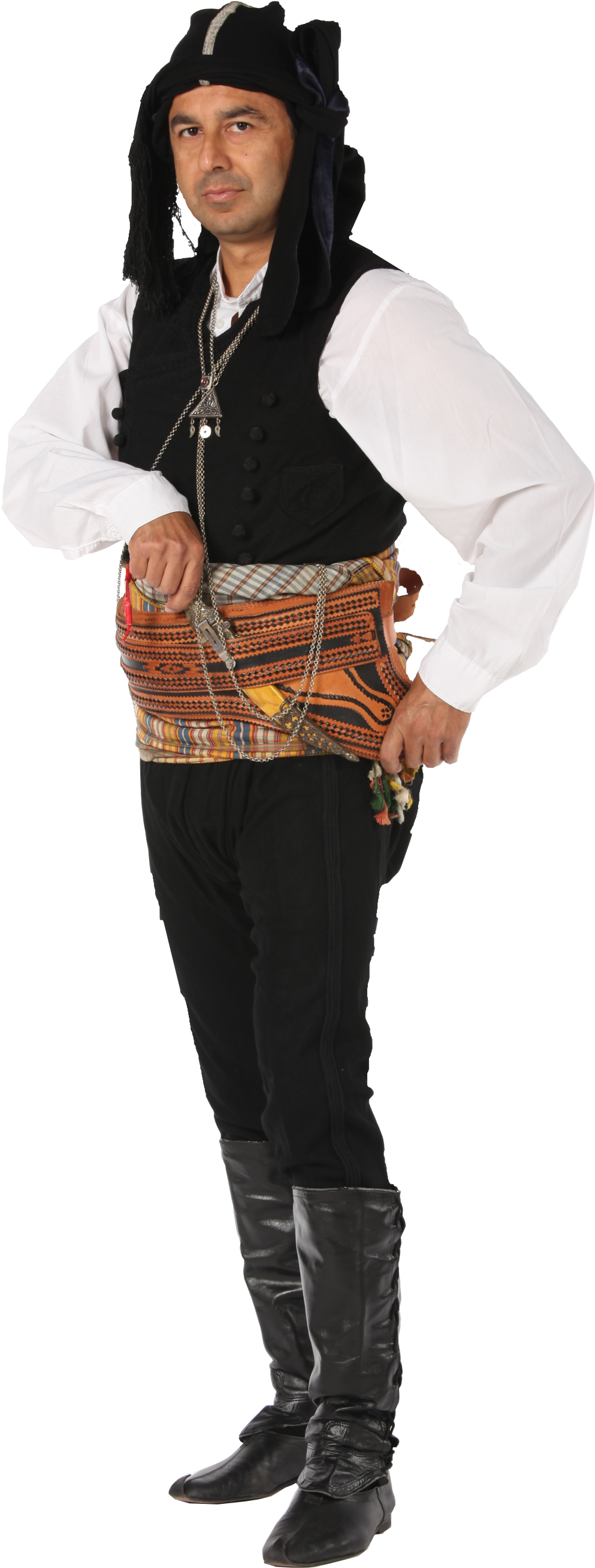Diese Interviewfragen habe ich (auf Englisch /Übersetzung A. Güttl) schriftlich beantwortet.
 1. Bitte stelle dich den Leserinnen kurz vor:
1. Bitte stelle dich den Leserinnen kurz vor:
I am a researcher, instructor and performer of Greek traditional dance. I was born in 1968 in the village of Prohoma, near Thessaloniki in Greece. My family origins trace back to Pontic Greeks from the region of Kars.
I left my marketing position in 1997 to dedicate myself fully to Greek dance as researcher and teacher.
I have participated in hundreds of dance performances in Greece and abroad and I have taught in more than twenty dance associations in Greece.
I prepared the entries about Pontic dance in the «Encyclopedia of Pontic Greeks» (editor: Malliaris Pedia), I have contributed works on dance for various academic and popular journals and newspapers, and I wrote for my own page in the magazine “Amastris” dedicated to Pontic culture and history.
Ich bin Forscher, Tanzleiter und Tänzer von traditionellen, griechischen Tänzen. Ich wurde 1968 im Dorf Prohoma, nahe Thessaloniki/Griechenland, geboren. Meine Familie stammt von pontischen Griechen aus der Region Kars ab. 1997 habe ich meine Stelle im Marketing aufgegeben, um mich vollständig auf die Erforschung und den Unterreicht des griechischen Tanzes zu konzentrieren. Seither habe ich an hunderten von Tanzveranstaltungen in Griechenland und im Ausland teilgenommen und habe in mehr als 20 Tanzorganisationen in Griechenland unterrichtet. Ich habe Einträge über pontische Tänze in der «Encyclopedia of Pontic Greeks» (Verlag: Malliaris Pedia) erstellt und darüber verschiedensten Zeitschriften und Zeitungen geschrieben.
2.Wo liegt dein tänzerischer Hintergrund?
I have learned to dance in an early age in my village from my family and other people in the village. Later I participated in the local dance group and as a student in many dance associations like the Cretan Students, Epirotic Students, Pontic Students etc. For many years I was part of "G. K. Fotiadis" group with Damianos (Bulis) Charalambidis as a dance teacher. I completed a degree in Physical Education and Athletics from Aristotle University in Thessaloniki with a major in traditional dance in 2003
Ich habe schon als Kind von meiner Familie und den Leuten aus dem Dorf tanzen gelernt. Später war ich Mitglied der lokalen Tanzgruppe und als Student in vielen Tanzorganisationen aktiv (Cretan Students, Epirotic Students, Pontic Students etc.). Viele Jahre war ich Teil der "G. K. Fotiadis" Gruppe mit Damianos (Bulis) Charalambidis als Tanzlehrer. Ich habe 2003 das Sportstudium an Aristoteles Universität in Thessaloniki abgeschlossen, mit einem Schwerpunkt auf traditionellen Tänzen.
3. Was ist dein aktueller, thematischer Tanzschwerpunkt?
I am both a researched of Greek dance and a dance teacher. I research mostly the traditions in the Northern Greece including the population with roots in Pontos and Asia Minor in general as well as in the Northern Thrace. Currently I teach at “Kentro Meletis Paradosiakon Horon – Kyklos” which I co-founded in 2005. I also instruct the course "Traditional dance and Pyrihi" ("Παραδοσιακοί χοροί και Πυρρίχη") as a professor at the University of Macedonia in Thessaloniki.
Ich forsche insbesondere über die Traditionen im nördlichen Griechenland, was auch die Bevölkerung mit Wurzeln in Pontos, Kleinasien und Nordthrakien einschließt. Aktuelle gebe ich Kurse in “Kentro Meletis Paradosiakon Horon – Kyklos” , das ich 2005 mitbegründet habe. Ich gebe als Professor der Universität von Mazedonien in Thessaloniki einen Kurs über “Traditionelle Tänze und Pyrihi” " ("Παραδοσιακοί χοροί και Πυρρίχη")
4. Beschreibe uns bitte für wen und wo (Region) du deine Kurse anbietest?
In Greece I offer lessons for my students in the University and for adults in the association "Kyklos" both in Thessaloniki. I also have been invited to teach in numerous seminars on Greek dance every year both in Greece and worldwide; I have taught in Canada, Germany, Israel, Italy, Switzerland, Brazil, Japan, Australia, the United States, New Zealand, France and other countries. Since 2000, I have also organized an annual 10-day long summer dance conference in Greece and since 2009 a ten days tour at villages in the Northern Greece both well attended by dancers from around the world. All people who love Greek Dancing are welcome in my classes!
In Griechenland biete ich meine Kurse den Studierenden an der Universität an, Erwachsenen in “Kyklos”, beides in Thessaloniki. Auf Einladung habe ich zahllose Seminare über griechischen Tanz in Griechenland und weltweit gehalten: in Kanada, Deutschland, Israel, Italien, Schweiz, Brasilien, Japan, Australien, USA, Neuseeland, Frankreich etc. Seit 2000 organisiere ich jedes Jahr eine 10tägige Sommertanzkonferenz in Griechenland und seit 2009 eine 10tägige Tour durch die Dörfer im nördlichen Griechenland. Diese warden von TanzliebhaberInnen aus der ganzen Welt gerne besucht. Alle, die griechische Tänze lieben, sind in meinen Kursen herzlich willkommen.
5. Welche Träume, Wünsche, Visionen hast du in Bezug auf den Tanz?
To gain through my field and secondary research more and more knowledge and to spread this knowledge around; and some day to create the ideal Greek Dance Campus where the best teachers and researchers will teach and present their knowledge.
Durch meine Forschungen immer mehr Wissen anzueignen und dieses Wissen an möglichst viele Interessierte weiterzugeben; und irgendwann in der Zukunft einen idealen griechischen Tanzcampus zu organisieren, in dem die besten Lehrenden und Forschenden unterrichten und ihr Wissen weitergeben.
6. Gibt es ein Motto oder Spruch , der für dich wichtig ist?
Through dance I learned the most of me!
Am meisten über mich habe ich beim Tanzen gelernt!
7. Was ist deine nächste Tanzveranstaltung?
14. Griechisches Tanzseminar mit Live-Musik vom 29.12.2017-1.1.2018 in Bad Herrenalb
- Anmelden oder Registieren, um Kommentare verfassen zu können
